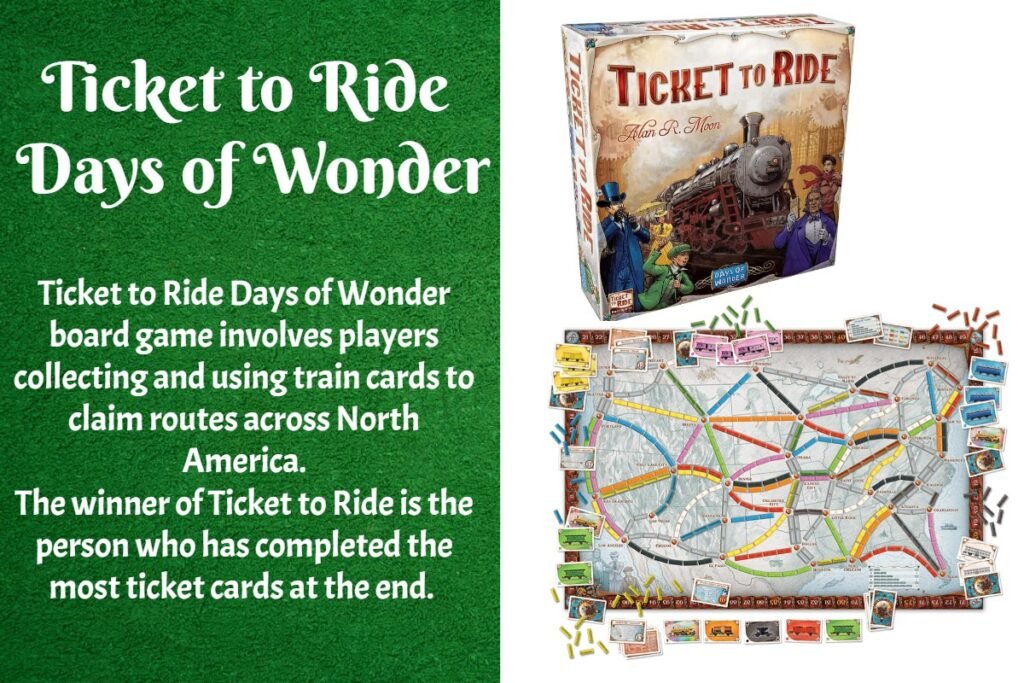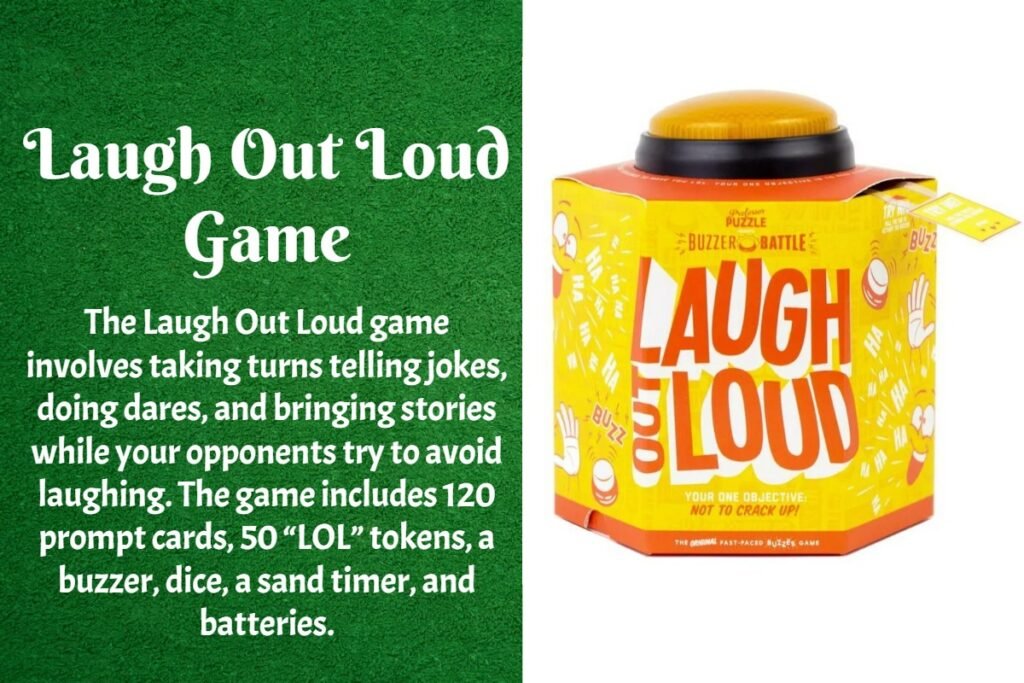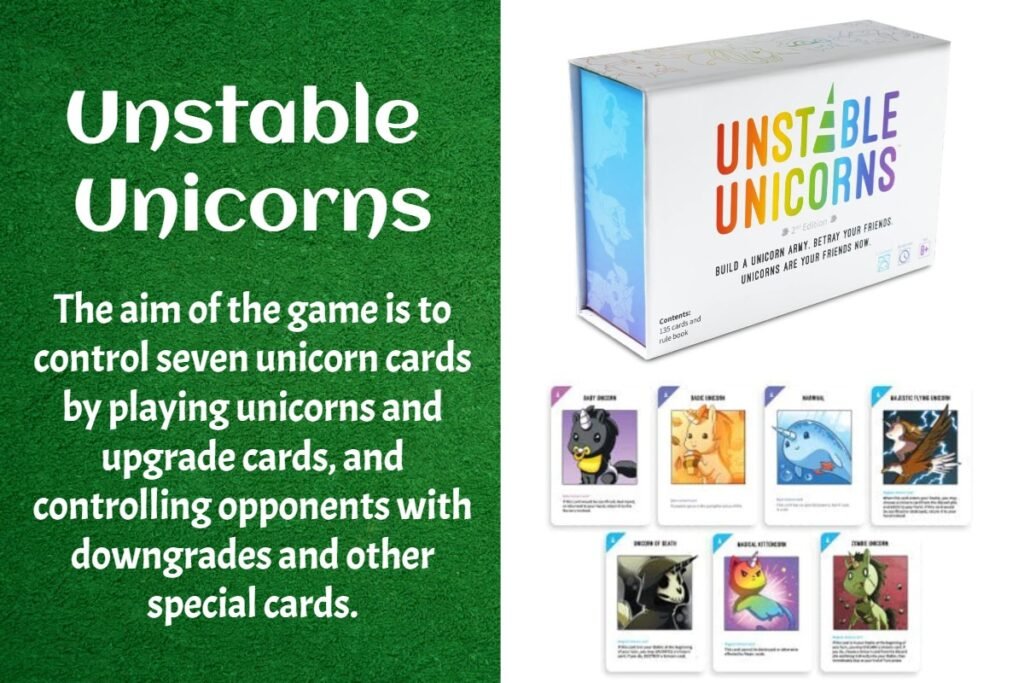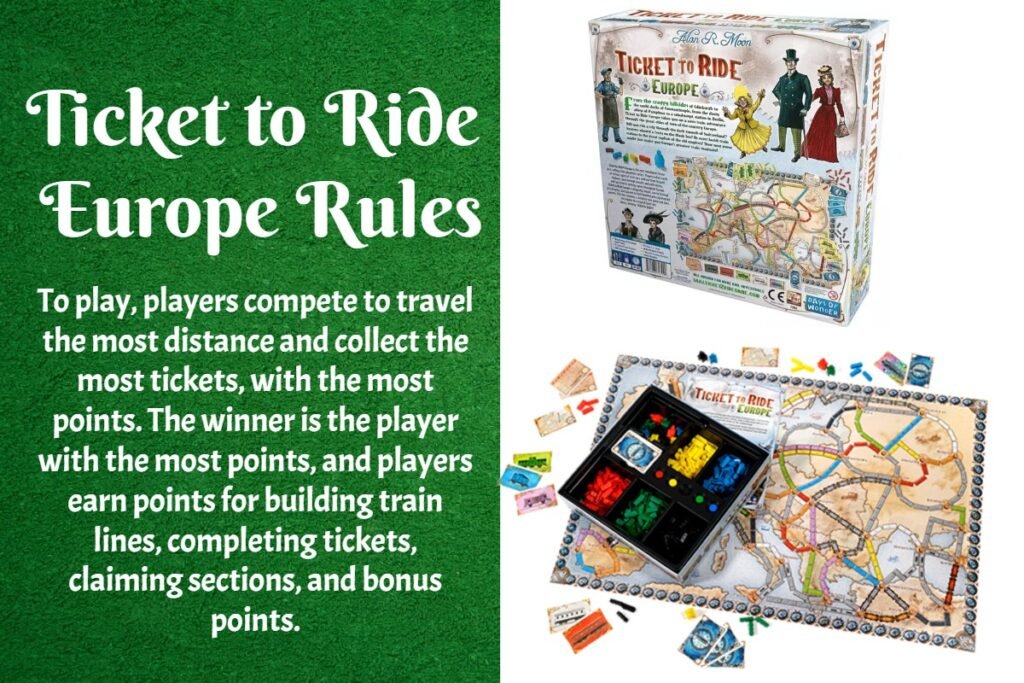Some of the best educational board games are classics and modern favorites like Ticket to Ride for strategy and geography, Catan for resource management, Scrabble for vocabulary, Blokus and Qwirkle for spatial reasoning, Carcassonne for strategic tile-laying, and Dixit for creativity and language. Other great options include Forbidden Island for cooperative problem-solving, Sequence For Kids for strategic thinking, and Zingo! for early literacy and word recognition.

Here, we will introduce you to some of the best educational board games to play and have fun, plus educational experience. From preschoolers to adults, there is a game for everyone on this list.
Educational Board Games List
- Sneaky Snacky Squirrel Game
- Boggle
- Chutes and Ladders
- Scrabble
- Ticket to Ride
- Catan
- Chess
- Code names
- Ecosystem
- Yahtzee
- Bananagrams
- Blokus
- Candyland
- Cluedo
- Mastermind
- Monopoly
- Scattergories
- Scrambled States
- Sequence
- The Game of Life
- Zingo
Best Educational Board Games
Here are these 20 educational board games explained in simple:
Sneaky Snacky Squirrel Game
Sneaky Snacky Squirrel is a game for preschoolers that helps them learn counting, colors, and matching skills. In the game, players use a squirrel tweezer to pick up acorns and put them on their logs. They also follow the spinner’s instructions.
Boggle
Boggle is a word game for two or more players that helps in learning and understanding vocabulary and spelling skills. In Boggle, players shake a grid of letter dice and try to find as many words as possible by connecting adjacent letters. The longer the words, the more points they score.
Chutes and Ladders
Chutes and Ladders is a classic board game for children that helps them learn counting and consequences. To play Chutes and Ladders, Players roll a die and move their pawns along a numbered path, hoping to land on ladders that will take them closer to the finish line and avoid chutes that will send them back.
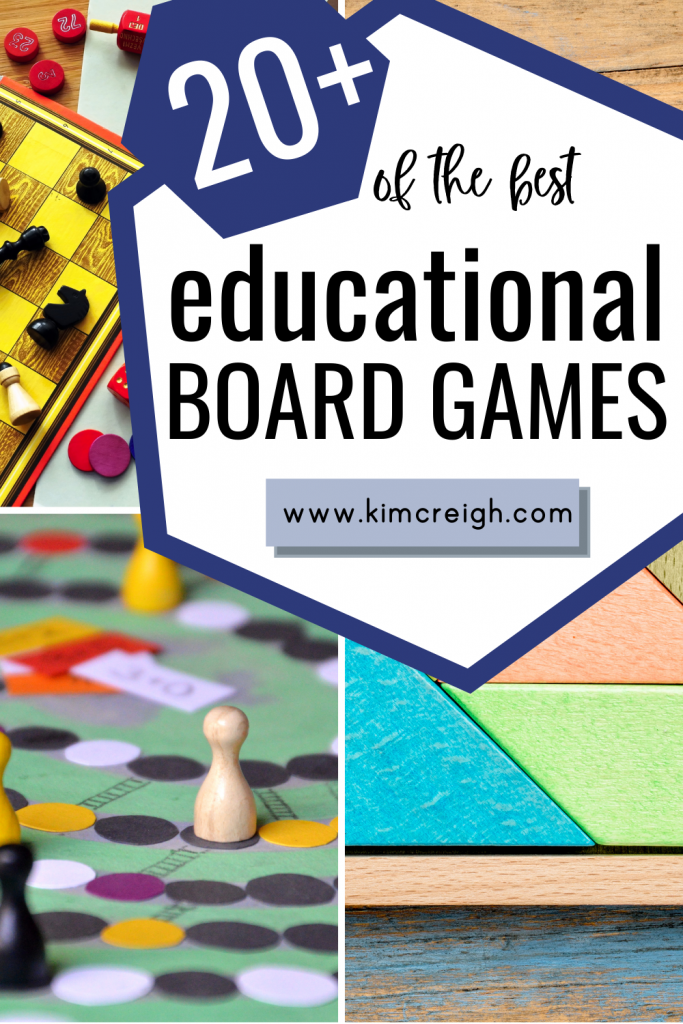
Scrabble
Scrabble is a popular word game for two to four players that tests and helps in improving vocabulary and strategy skills. In Scrabble, players take turns placing tiles with letters on a board, forming words that connect with existing words. In scrabble, each letter has a point value, and some squares on the board have bonus points. The player with the highest score at the end of the game wins.
Ticket to Ride
Ticket to Ride is a strategy game for two to five players that simulates a cross-country train adventure. In Ticket to Ride, players collect cards of various colors and use them to claim railway routes on a map of North America. The longer the routes, the more points they earn.
They can also score extra points by completing destination tickets that connect two distant cities. The player with the most points at the end of the game wins.
Catan
Catan is a trading and building game for three to six players that includes the colonization of an island. In Catan, players roll dice to gather resources such as wood, brick, wheat, sheep, and more and use them to build roads, settlements, and cities.
They can also trade with other players or with a bank. They earn points for their constructions, as well as for having the longest road or the largest army. The first player to reach 10 points wins.
Chess
Chess is a traditional game for two people that requires strong thinking and planning. In Chess, players control 16 pieces each, with different movements and abilities, such as the king, the queen, the rook, the bishop, the knight, and the pawn. The objective is to checkmate the opponent’s king, which means to trap it so that it cannot escape.
Code names
Code names is a word game for four or more players that requires teamwork and deduction. In Code names, players are split into two teams, each with a spymaster who knows the secret identities of 25 agents. Words on a grid of cards represent the agents.
The spymasters take turns to give one-word clues to their teammates, who try to guess which cards belong to their team. The team that finds all their agents first wins, but they have to avoid the assassin, who ends the game immediately.
Ecosystem
Ecosystem is a card game for one to six players that simulates the creation of a natural environment. In the game Ecosystem, participants select cards symbolizing various animals, plants, and environments and organize them in a display. In Ecosystem, players earn credits for keeping different stable ecosystems and meeting specific goals.
Blokus
Blokus is a strategy game where you have to place your colored tiles on the board and try to block your opponents from doing the same process. The Blokus game is easy to learn but challenging to master, as you have to balance offense and defense. Blokus is suitable for 2 to 4 players, and each game lasts about 20 minutes.
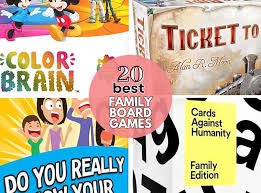
Candyland
Candyland is a classic children’s game where you have to move your pawn along a colorful path and reach the Candy Castle. Along the way in Candyland, you may encounter different characters and locations from the Candyland world, such as Princess Frostine, King Kandy, and the Gumdrop Mountains. Candyland is a game of luck and imagination, and 2 to 4 players can play it between ages three and up.
Scattergories
Scattergories is a word game where you have to come up with words that fit within a certain category and start with a specific letter. For example, if the category is “Animals” and the letter is “C,” you could write “Cat,” Camel,” or “Crocodile.”
You score points for each unique word that you write, but you lose points if you repeat a word or write something that does not match the category. Scattergories is a game of creativity and speed, and it can be played by 2 to 6 players, ages 12 and up.
Mastermind
Mastermind is a logic game where you have to guess your opponent’s secret code. The code consists of four colored pegs chosen from six possible colors. You have to make a series of guesses, and your opponent will give you clues about how many pegs are of the right color and in the right position.
You have to use deduction and elimination to crack the code in as few guesses as possible. Mastermind is a game of skill and strategy, and it can be played by two players, ages eight and up.
Sequence
Sequence is a card and board game where you have to make sequences of five chips of your color on the board. In Sequence, You can place a chip on any space that matches a card in your hand, and you can use wild cards to help you. You can also block your opponents from making sequences or remove their chips with special cards. The sequence is a game of luck and planning, and it can be played by 2 to 12 players, ages seven and up.
Yahtzee
Yahtzee is a dice game for two or more players that involves luck and strategy. In Yahtzee, players roll five dice and try to get certain combinations of numbers, such as three of a kind, four of a kind, full house, small straight, large straight, or Yahtzee (five of a kind). They can roll the dice up to three times per turn, keeping or discarding any dice they want. They score points for each combination they make, and the player with the highest score at the end of the game wins.
Bananagrams
Bananagrams is a word game for one to eight players that requires speed and creativity. In Bananagrams, players have a set of tiles with letters on them, and they try to form words by connecting them in a crossword-like grid. They can rearrange their tiles at any time, and they have to use all their tiles to win.
The Game of Life
The Game of Life is a board game for two to six players that simulates the journey of life. In the Game of Life, players move their car-shaped pawns along a track, making choices and facing consequences along the way. They can get married, have children, buy a house, change careers, and more.
They also earn money and pay taxes, and they can win or lose money by spinning a wheel of fortune. The game has different versions and editions, and you can play online, on a console, or a smartphone app.
Zingo
Zingo is a matching game for two to eight players that encourages pre-readers and early readers to match pictures and words. The Zingo game has a device called the Zingo Zinger that dispenses tiles with images and words on them. Players have to match the tiles to their cards, which have different levels of difficulty. To win the game, the first player to fill their card and yell “Zingo!” wins.
FAQs
Can board games help you learn?
Yes, board games can help you learn various skills, such as critical thinking, problem-solving, communication, cooperation, and more. They can also stimulate your brain and improve your memory and cognitive abilities.
How to learn a board game?
The best way to learn a board game is to read the rules carefully, watch a tutorial video or a playthrough, and practice with other players. You can also look for online resources, such as forums, blogs, or podcasts, that offer tips and strategies for specific games.
What is the board game for learning English?
Many board games can help you learn English, such as Scrabble, Taboo, Scattergories, Apples to Apples, and more. These games can help you improve your vocabulary, spelling, grammar, and fluency. They can also make learning English fun and engaging.
What is a board game in education?
Board games in education are used as a teaching and learning tool in various educational settings, such as schools, universities, libraries, or museums. Board games can enhance the curriculum, motivate the students, and foster collaboration and creativity.
Why are board games great?
Board games are great because they offer many benefits for your health, happiness, and social life. Board games can reduce stress, lower blood pressure, boost your mood, and strengthen your relationships. Board games can also provide entertainment, challenge, and variety for your leisure time.
Are board games good or bad?
Board games are neither good nor bad in themselves, but they can have positive or negative effects depending on how you play them. Board games can be good for your brain, your skills, and your well-being, but they can also be harmful if you play them too much, neglect other aspects of your life, or become too competitive or addicted.
How do board games work?
Board games work by following a set of rules that define the objectives, actions, and outcomes of the game. Board games usually involve moving pieces or tokens on a board, using dice, cards, or other random elements, and interacting with other players.
What is board game strategy?
Board game strategy is the ability to plan and execute effective moves in a board game, taking into account the game rules, the board state, the available resources, and the actions of other players. Board game strategy can involve various aspects, such as pattern recognition, logic, bluffing, negotiation, and more.
How do board games help children learn?
Board games can help children learn, practice, and develop various cognitive, social, and emotional skills. Board games can help children learn to follow instructions, take turns, cooperate, communicate, and cope with winning and losing. Board games can also help children learn about different topics, such as numbers, letters, words, colors, shapes, animals, and more.
Do board games help your brain?
Yes, board games help your brain by stimulating various areas and functions, such as memory, attention, concentration, logic, creativity, and more. Board games can also prevent or delay cognitive decline and dementia by keeping your brain active and healthy.
Do board games improve memory?
Yes, board games improve memory by challenging your brain to store and recall information, such as rules, moves, cards, or pieces. Board games can also enhance your working memory, which is the ability to process and manipulate information in your mind. Board games can also boost your long-term memory, which is the ability to remember facts and events over time.
Are board games luck or skill?
Board games can be based on luck, skill, or a combination of both. Luck-based games are those that rely mostly on random elements, such as dice, cards, or spinners, and have little or no control over the outcome. Skill-based games are those that depend mostly on your abilities, such as strategy, logic, or knowledge, and have more influence over the outcome.
Do board games exercise your brain?
Yes, board games exercise your brain by making it work harder and smarter. Board games can improve your brain’s plasticity, which is the ability to adapt and change in response to new experiences and challenges. Board games can also increase your brain’s working, which is the number and strength of connections between brain cells.
Discover more from Learning Board Games
Subscribe to get the latest posts sent to your email.

